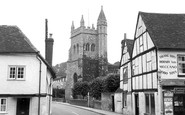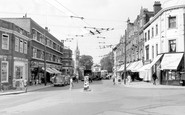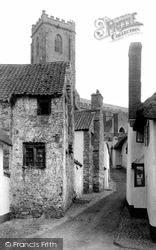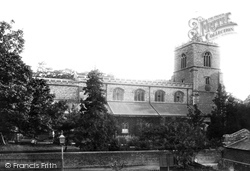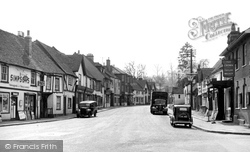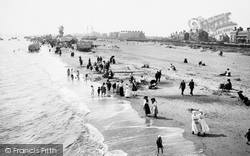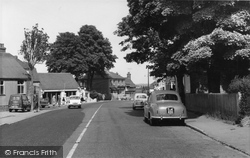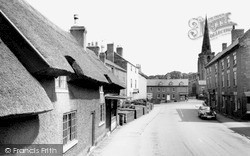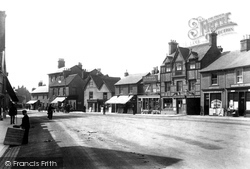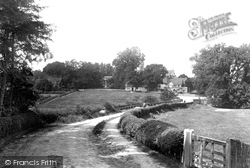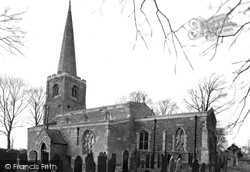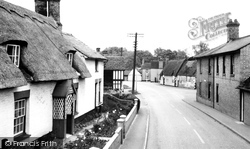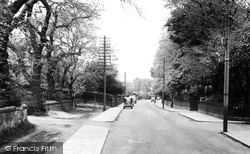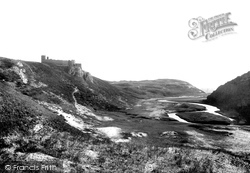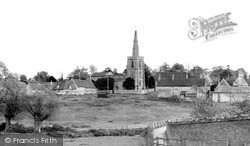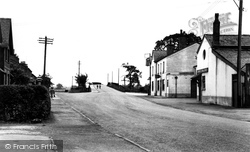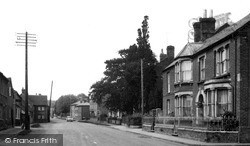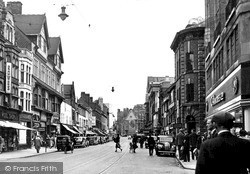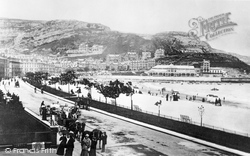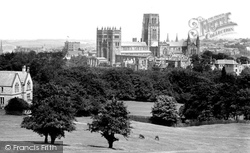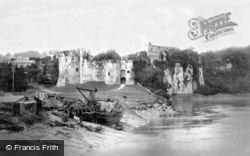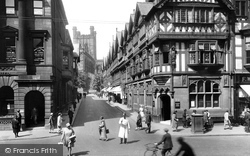Photos
Sorry, no photos were found that related to your search.
Maps
66 maps found.
Books
Sorry, no books were found that related to your search.
Memories
183 memories found. Showing results 51 to 60.
An Under Housemaid At Williamscot House
When my Great Aunt Phyllis Ivy Jarrett left school at the age of 13 (about 1918), she joined the domestic staff at Williamscot House, where she was an 'under-housemaid'. Phyllis used to send photos home ...Read more
A memory of Williamscot in 1920
Platers And Stampers
I worked here as a Plater for about 1yr.Not a good memory.They sacked me for taking time off to join the RAF so I joined the RAF.Best move I ever made.
A memory of Burnley in 1960 by
Update:Mystery Solved!!
To Whom It May Concern: I am an American living in the state of Maryland. I've had a picture in my office for quite some time now, that I recently took a better look at. Originally, I was told that this picture was of ...Read more
A memory of Amersham by
Grandmother's Flat Above The Shops
My family's house, just off the Kingston Bypass (now known as the A3) in Tolworth, was damaged as the result of enemy action in September 1940 and my parents and I stayed for a while with my grandmother in ...Read more
A memory of Surbiton in 1940 by
Teenage Memories
Cove was a special place, a place where I was born, at 11 Sydney Smith Close...now stands Beverly Crec.... My grandad Matthew Smith lived at 39 Holly Rd, and worked on the railway as a plate layer. Growing up we lived in Hazel ...Read more
A memory of Cove in 1958 by
Goldsmith Mansions
I was taken to live in Goldsmith Mansions as a baby of two months in 1946. I lived there with my parents until approximately 1949. I have a memory of walking up the staircase to our flat. I have a much more vivid memory of the ...Read more
A memory of Peckham in 1946 by
My Early Chidhood
I was born at 32 Pisgah Road which was the bottom end cottage of a row of three opposite Pisgah Chapel. The cottages had no back entrances. There was a pathway running in front of the three cottages with an outside toilet ...Read more
A memory of Talywain in 1945 by
The Providence Congregational Church 1956
"The Providence", as it was commonly known, stood at the corner of Laundry Yard and The Lynch. Built in 1795 with a later facade it was a gem of late georgian "chapel" architecture. You entered through a ...Read more
A memory of Uxbridge in 1955 by
People And Friends That I Knew Or Know, And Places That I Worked At
I lived on Lilley Street (off Queens Road) and used to go in: The Bottom Derby, The Osborne House, The Milan, The Forresters, The Salvage, the Robin Hood and occasionally ...Read more
A memory of Collyhurst by
Preist Brothers Upper Flat
I lived in the flat above Priest's Store and used to play out behind the garage. I went to the village two room school attached to the church, Mrs Stringer lived across the street. Her daughter was my ...Read more
A memory of Milton under Wychwood in 1955 by
Captions
145 captions found. Showing results 121 to 144.
On the left corner is John's Cottage, a late 16th-century stone house with a surviving moulded timber mullioned window facing the photographer.
In fact the oldest part of the building is the tower which is a late Gothic structure dated 1630, the aisles are in brick and remain from an 1824 rebuild.
The timber braces in the distance, just to the right of the lorry, belong to Stonewells, a late 15th-century hall house with crosswings.
A late Edwardian scene before development took place along Grand Parade, and when grassy sand dunes filled the space where the Embassy Centre is now situated.
main road, this is the real centre of the modern village; there is a good range of shops and pubs, and the school, Herstmonceux Church of England Primary School, lies behind the fence on the right, a late
Further on towards the parish church are a selection of early 19th-century houses, matched on the opposite side of the road by a later three-storey brick terrace.
The Lamb pub, a late Victorian insertion, was demolished in 1974 and replaced by the present Boots, while all to the left of it went for the pallid neo-Georgian Martin's and a brutalist Waitrose
The church of St John the Baptist, originally built between the 13th and 15th centuries, has a late Perpendicular tower, glimpsed through the trees here, and its interior, largely remodelled
The church of St John the Baptist, originally built between the 13th and 15th centuries, has a late Perpendicular tower, glimpsed through the trees here, and its interior, largely remodelled by Sir
Here, in a relatively elaborate tomb, lies Everard Digby, who died in 1628, namesake of Sir Everard, who was executed for his part in the Gunpowder Plot in 1605.
The foreground cottage has a late 16th-century chimney, but was refronted in the 19th century.
Here, in a relatively elaborate tomb, lies Everard Digby, who died in 1628, namesake of Sir Everard, who was executed for his part in the Gunpowder Plot in 1605.
Brotton is another settlement with an ancient history; it was also seriously influenced by the ironstone industry at a later date.
Further on towards the parish church are a selection of early 19th-century houses, matched on the opposite side of the road by a later three-storey brick terrace.
The ruins are of a late 13th-century rectangular castle built on the site of an earlier stronghold that was possibly destroyed during the Lord Rhys' campaign.
Internally, the church has a good late 12th-century north arcade and a later south arcade. The great Gothic Revival architect George Edmund Street (1824-81) restored the building in 1852 and 1861.
The pub has recently been demolished, but it had a late hour of glory during the 1997 General Election, when it was besieged by the nation`s press as inside, the local Conservatives deliberated
On the corner is The Laurels, a late Victorian bay-windowed villa dated 1897. Behind it is Beech Tree Court, houses formed out of old farmbuildings.
The shops to the left of the photograph retain their excellent fronts with stall-boards and timber frames, a sight which has become a rarity in a plate-glass world.
A late 19th-century guide sings Llandudno's praises: 'the bright blue waters of the sea, the majestic ruins and bridges of Conway, all combine to form a prospect of wondrous beauty, which, bounded by the
However, at a later stage another chapel, the Chapel of the Nine Altars, was built at the cathedral's east end – mysteriously, this seems to have had no major structural problems.
Originally there would only have been arrowslits in its front face; the windows are from a later period.
St Werburgh was a late 7th-century Saxon princess and a daughter of king Wulfhere of Mercia.
New flats and houses were erected there in the late 1950s.
Places (1)
Photos (0)
Memories (183)
Books (0)
Maps (66)

